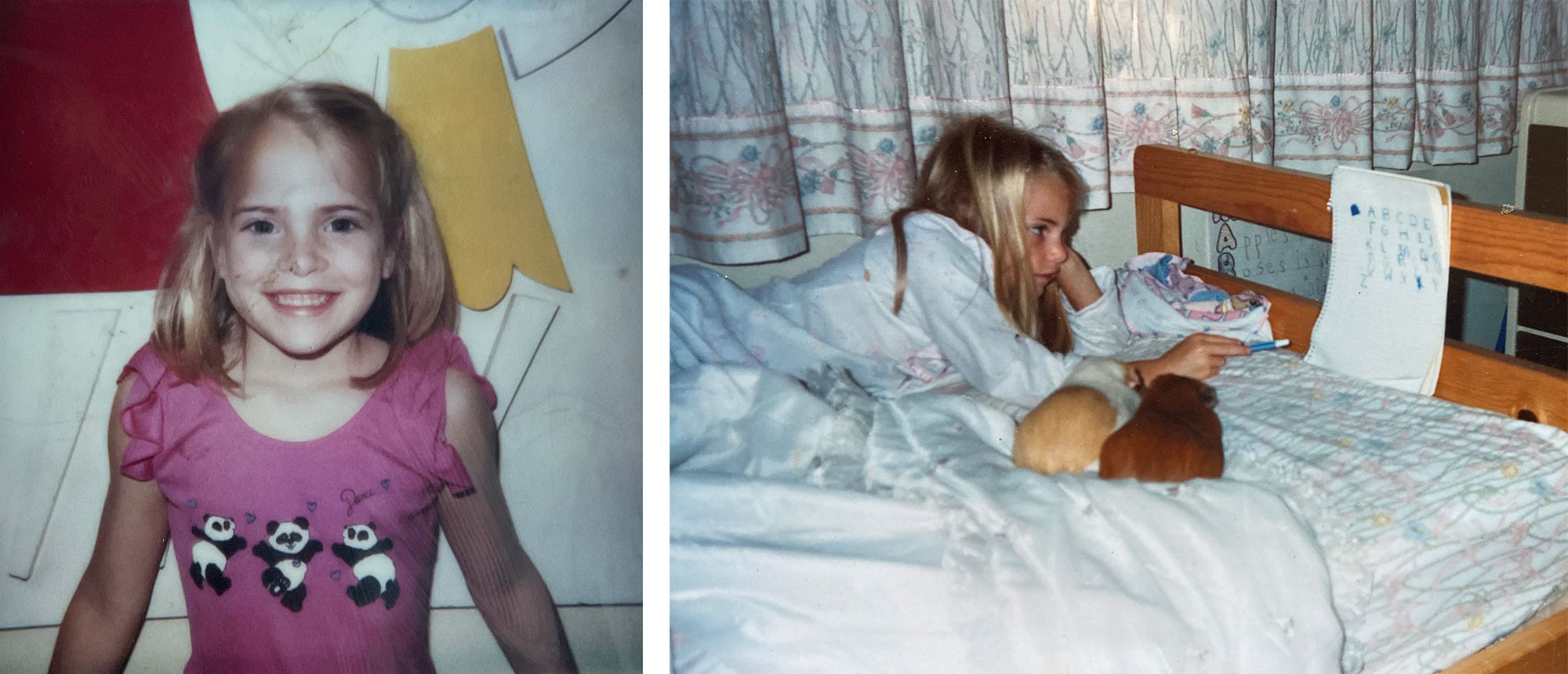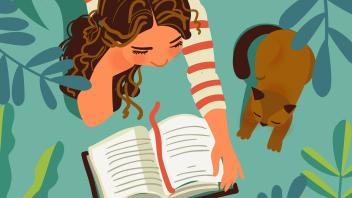I loved my first grade teacher, but she didn’t teach me how to read.
The start of a problem
Mrs. B earned her teaching credential during the height of Whole Language. She read aloud to us every day and led projects related to books — making moon hats like Little Bear and our own Stone Soup. For a whole-class rendition of Where the Wild Things Are, a parent volunteer taped construction paper “claws” to my fingers. I was jealous of the boy who got to play Max. He and the kids in the higher Guided Reading group discussed interesting books, while I had to recite boring, repetitive sentences from “baby” books.

We wrote in journals every week and my teacher responded in writing to each entry. She would call me up to her desk and ask me what I’d written, often transcribing what I said in her small, neat print, underneath the words I’d attempted.
My writing was unintelligible, but I focused on the bright side; I loved our hushed conversations.
Each week Ms. B assigned spelling lists, words on a theme such as “Halloween” or “The Park.” My mom tried to help me memorize the words, but I frequently confused the order of the letters and rarely earned stickers on the class chart that tracked the progress of each student.
I was failing at first grade but I loved my teacher so much, I hardly noticed.
A supposed resolution
My parents fretted about my inability to read and my “inventive spelling.” But towards the end of first grade, something clicked. I began to read and no one knows how.
I remember doing a report on Georgie’s Marvelous Medicine, a chapter book by Roald Dahl. I mixed together a magic potion, like the character in the book, and I brought my concoction to school in a ketchup bottle. At the end of my rehearsed speech, I sipped from the bottle and stood on my tippy toes to magically “grow.” The class gasped. My teacher was also surprised, but for different reasons. “Did you really read that book?” she asked.
I still have my first grade journal. I credited my beloved Ms. B for my growth and my desire to become a teacher. I believed my eventual reading success was evidence that every child will become literate, if only we give them time, a teacher who loves them, and the right environment.
Lingering challenges
Throughout middle- and high school, I loved English classes and I assumed that was because I was a good reader and writer. It never crossed my mind that I had difficulty extracting meaning from science textbooks because of a reading-related problem. Nor did I see that my inability to remember the names of people and places in History was the result of a decoding deficit. I did know that I was terrible at spelling but I headed to college (to major in Literature and minor in Education) prepared to use Spell Check.
In college, my classmates easily remembered the names of characters and places, terminology, and authors. I compensated for what I believed was my lack of attention to detail by highlighting key words so that I could quickly reference back to the text. Other people read and pronounced unfamiliar words with confidence, but I could not.
On a walk, while home from college, I asked my mother, “How do you know it’s Fair-MONT and not Fair-MOUNT Elementary School?” Without missing a beat she replied, “Because there’s no U in it.” I was puzzled, wondering how the sound for U could possibly be in the word I’d asked about. I had never learned how a word’s spelling could be used to figure out its pronunciation.
I didn’t see these challenges as related and I certainly didn’t connect them back to what I remembered as a wonderful year in first grade.
Understanding the problem
It wasn’t until, a decade into teaching, that I discovered articles about the process of reading that I began putting the pieces together. The way I read was described by Goodman, Clay, Fountas, and Pinnell as “skimming and scanning the page” and “using context to support word-solving.” When I read criticisms of their approach — that students would be unable to decode and learn unfamiliar words, that they’d waste cognitive resources on predicting and confirming words while reading, that they wouldn’t learn how to spell — I started to understand my own weaknesses as a reader.
I used to think that it didn’t matter how I learned to read, the fact that I’d become literate was the most important thing. But I came to realize that the way I was taught (or rather, not taught) to read words was affecting me even as an adult.
I wanted better for my students, and as a first grade teacher that meant learning phonics. I picked up an explicit phonics curriculum and I soon discovered spelling patterns I’d never known before, like _tch, _dge and ou. I’d wrongly believed that English had loads of silent letters, that vowel patterns had to be guessed, and that hundreds of words required memorization. But it turns out that English spelling is logical and it’s actually possible to explain spelling patterns in a kid-friendly way.
Better late than never
For a while, my newfound awareness of phonics interfered with my reading. I found myself unable to get lost in a book. Instead, I’d puzzle over the words: noticing the spelling patterns they contained or wondering why they were spelled that way. I briefly worried that my phonics instruction was doing what the Balanced Literacy leaders had warned about. Was it vanquishing my love of reading?
My students had no such worries and they became increasingly confident readers. Like them, I grew more automatic and accurate in decoding. My spelling improved as I transitioned from thinking about what looked right towards hearing and writing the sounds in every word. My comprehension during a first read of text grew and I retained more of what I read. I felt embarrassed about this transformation — I thought I was awfully old to be learning how to read and write — but other teachers have confessed to me that they’ve had similar experiences.
And now
I wonder what became of the other kids in my first grade Guided Reading group, the ones who didn’t experience the sudden surge that I did. They were students without the privileges I had, kids without highly-educated parents ready with a safety net if they continued to struggle. Later in elementary school, I’d see these classmates going down the hall to receive “Reading Intervention.” But what happened after that? Did they ever become skilled readers?
Ms. B inspired me to become a teacher, but I no longer strive to be just like her. I want to be the teacher who’s able to help students in the lowest reading group, because we wanted to enjoy good books, too. And I want to help all my students learn how to read efficiently, so they can extract as much as possible from the print on the page. I didn’t become completely literate until later in life and every one of my students deserves better than that.

At left: me in first grade. At right: teaching my first students — guinea pigs — how to “read” by singing an alphabet song.

